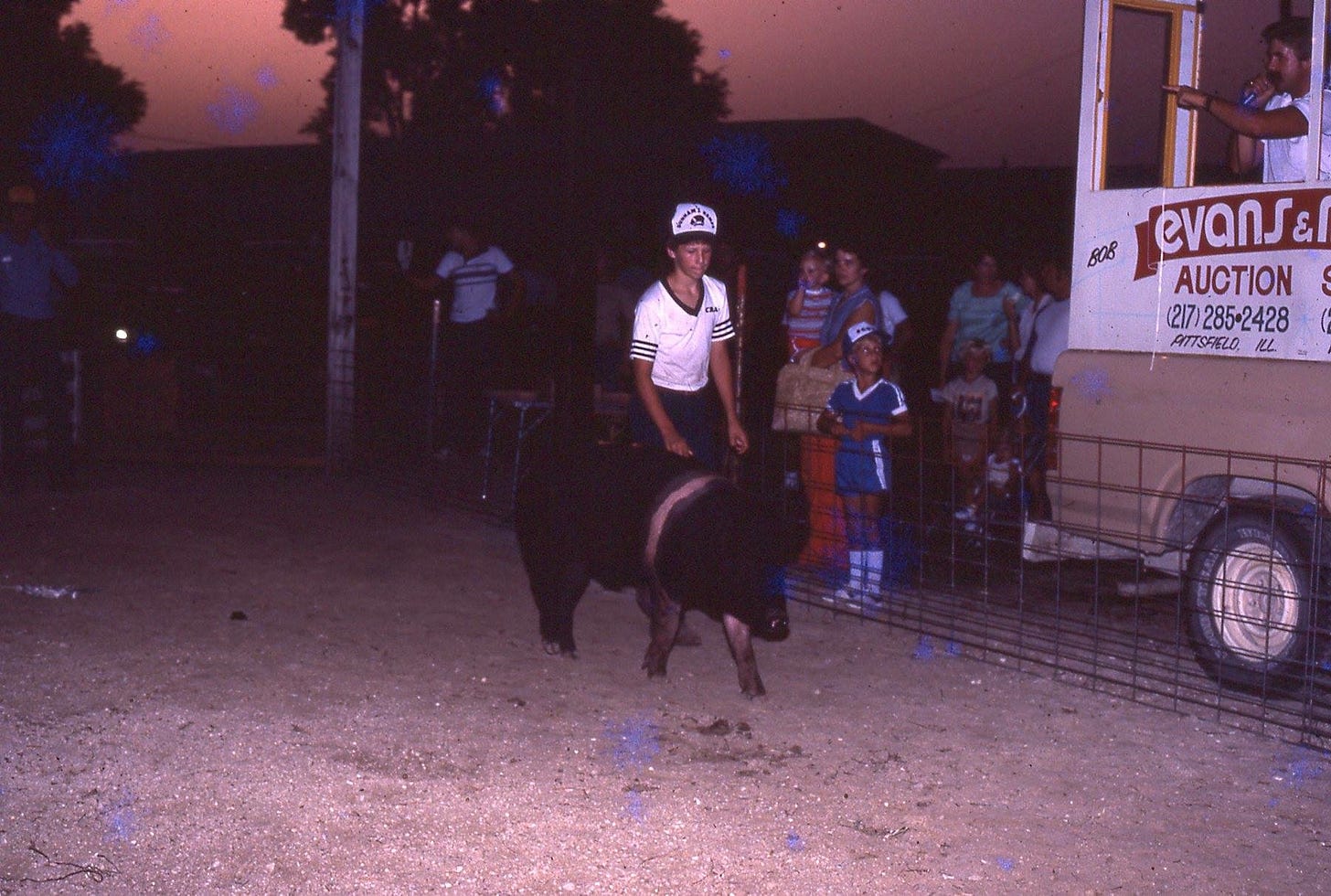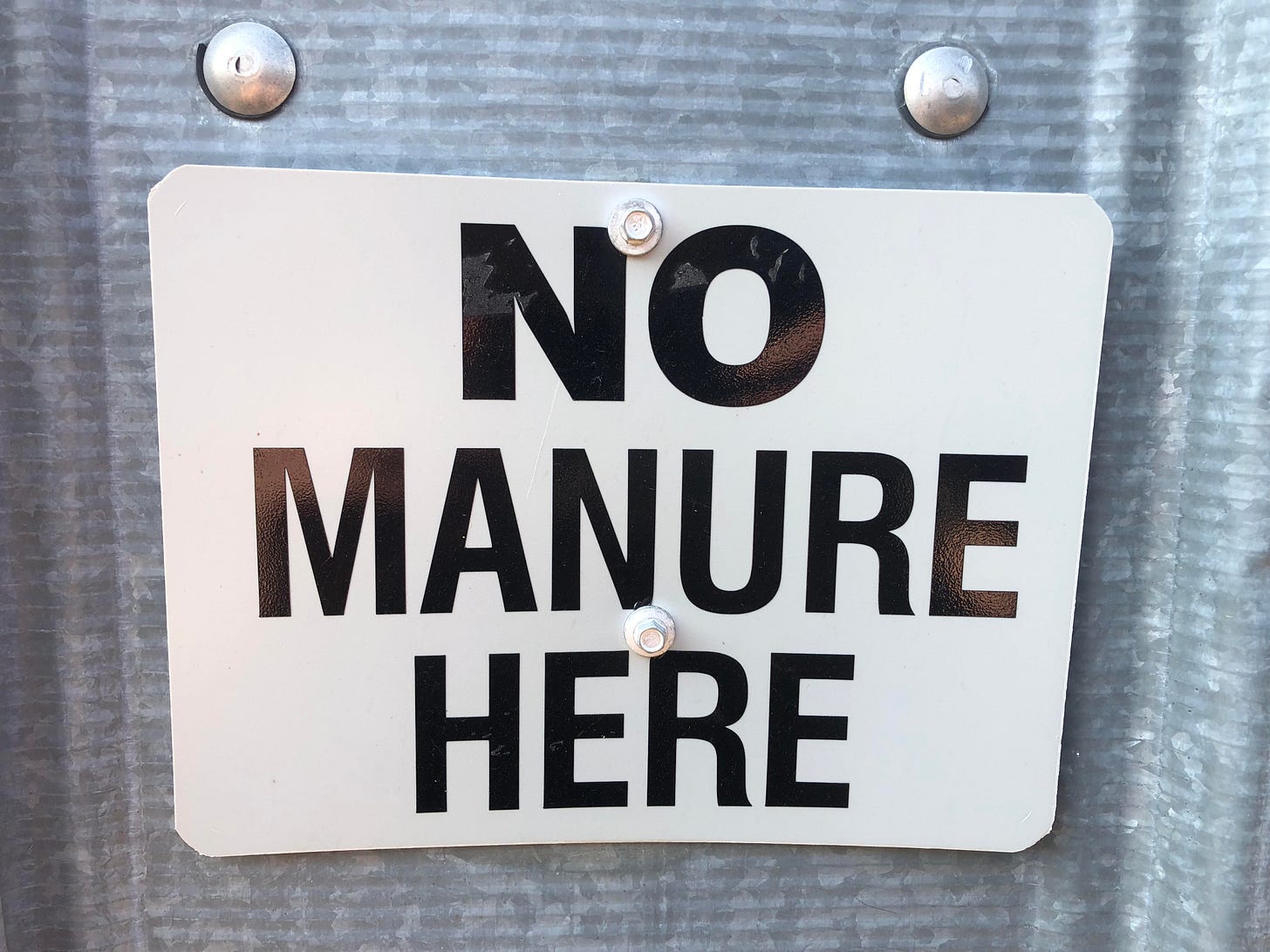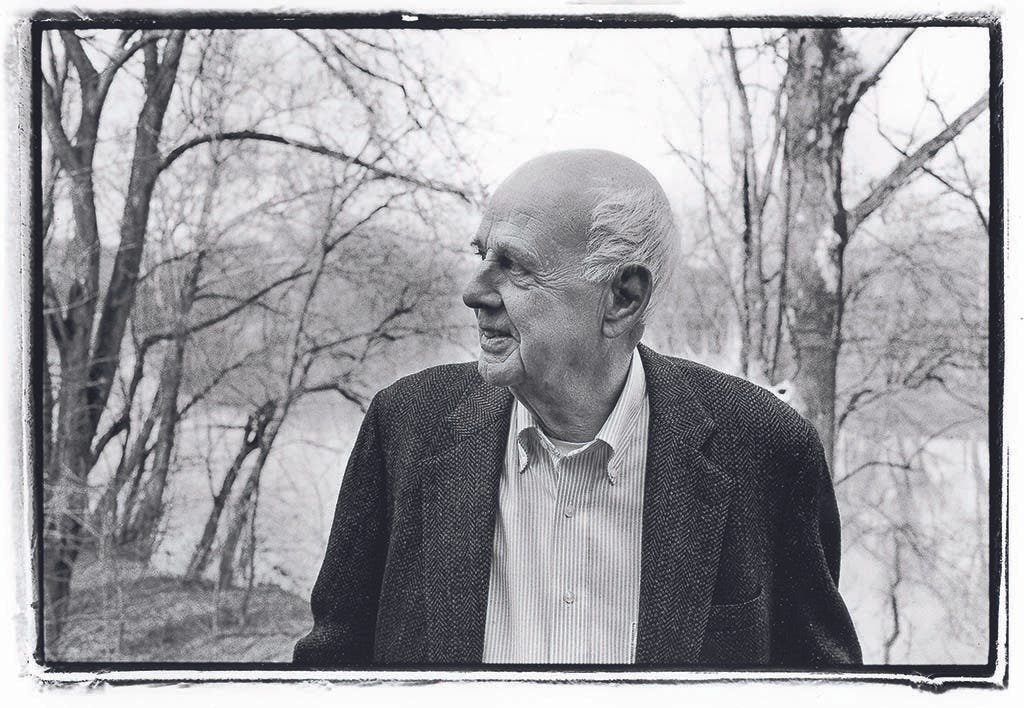This Week
Intro: Two emails on President Biden’s Cuba statement, same-sex attraction
Hot Takes: What if Spotify dies?; Montana’s boomtown; what are you smoking?
Feature: “People Are People Everywhere”
Post(erity): “Wendell Berry for Secretary of Agriculture”
Dear Reader,
According to Substack, over a thousand people “viewed” last week’s newsletter, due I’m sure in part to the controversial topic, but also because several of you shared it on social media and/or passed it on via email. While there’s no financial benefit for increased numbers (I still make the same either way - zero!), I’d be lying if I didn’t say I’m always glad for any broader influence that comes from reader promotion. To those who may have shared, many thanks.
Here are two emails with much to say. The first is from a reader/former Army colonel disagreeing with my initial positive response to President Biden’s statement on Cuba:
“Perhaps because governance/international relations/the world has been a past practice, and an educational focus, over the years, and perhaps because I’ve been disappointed with pretty much all things Cuba the last couple weeks, I clicked again on the President’s Comments on Protests in Cuba to see what I had missed.
Rather than good, I found the statement anodyne—and shockingly bad.
Perhaps most concerning is Mr. Biden remaking the Cuban regime as merely authoritarian, instead of the brutal totalitarian regime it is and has been for over 60 years.
Second, at 60+ years of repression, the President identifies "relief from the tragic grip of the pandemic" as first in the list of concerns the Cuban protestors (and people more broadly) must have, giving further life to the sad and silly communication from the administration, and from the regime, that the protests are primarily a response to inadequate COVID response.
Finally, and perhaps most disappointing, is the dog that did not bark. Perhaps the most significant opportunity in a half century to encourage a full change from communism, repression and lost opportunity in Cuba, and the administration has done the least it could do. A milquetoast written statement from the President, and barely more from any other senior officials.
Too bad we have missed our ‘Mr Gorbechev, tear down this wall’ opportunity.
If actions speak louder than words, should this make us wonder how the administration views totalitarian communism?”
Having watched from a distance the more recent developments in Cuba and the U.S.’ response to them, I can’t say I disagree with my reader’s perspective. However, I have my doubts as to how strongly President Biden could have channeled President Reagan without coming off a poor imitation.
Here’s an email from a friend who has done some homework on homosexuality:
“I struggle with the nature vs. nurture problem of this topic. Recent studies imply that, at least with what we know about current population genetics, LGBTQ attraction seems to be heavily weighted towards nurture (explaining greater than 75% of it at the moment). See the study here. Society has ignored the science, though, and just flat out adopted the ‘I was born this way’ standard. And label anyone who follows the scientific results a bigot. The 8-25% of instances that might be partially explained by nature create tension for me, though. If true, then God has degreed sinful what our DNA causes.
Is this fair? Perhaps the nurture evidence can be explained by genetic deterioration. The world is fallen, and despite what Marvel preaches, our genetic code is deteriorating. Yet, are we not still responsible for our actions despite our DNA? If someone was genetically pre-dispositioned to anger (there seems to be some genetic evidence for this), we would not say that murder would become morally right for them. And yet, my heart really does ache for those who are same-sex attracted because of their genetic programming.”
While the study linked is an important one (if for no other reason than the mainstream media and LGBTQ movement don’t want anyone to see it), we modernists can get wrapped around the axle in demanding data in order to explain why something is the way it is. No good answers from me, other than the most important sentence of the reader’s observation is his last one.
Thanks for the feedback, friends. And as always, thanks for reading.
Craig
P.S.: As a reminder, you’re welcome and encouraged to email me directly with feedback, ideas, links, etc. at cmdunham [at] gmail [dot] com. Just know that, unless you specifically tell me not to, I may quote you here (though it will always be anonymously).
Hot Takes
“What Will Happen to My Music Library When Spotify Dies?” - If you haven’t thought about this question, you should. Yes, streaming services are easy and convenient, but there’s no guarantee the companies or the technologies are always going to be around as they are and in their current form (or at all).
“Montana Boomtown Jumps to No. 1 on WSJ/Realtor.com Housing Market Index” - Surprisingly, it’s Billings, not Bozeman, but my take on that is simply one of availability. If more houses were actually available in Bozeman, we’d give Billings a run for their money even though they’re twice our size.
“What’s in Wildfire Smoke? A Toxicologist Explains the Health Risks and Which Masks Can Help” - Unfortunately, this article is all too timely for those of us here in the West. (cough, cough)
Feature: “People Are People Everywhere”
“The rich and the poor meet together; the LORD is the Maker of them all.” Proverbs 22:2
For the second week this summer, I’ve been “batching it” with Peaches; Megan is out of town visiting her family in Oklahoma, and our two youngest still have a few weeks left serving at Eagle Lake Camp in Colorado Springs.
As the calendar would have it, this was the week for the Big Sky State Fair here in Bozeman. So, with time on my hands and a slight break in the weather (mid 70s with a gentle breeze) on Wednesday, I did what any self-respecting former farm kid would do.
I went.
In addition, I did what any middle-aged wannabe journalist would do.
I took notes.
After all, where else can you witness thousands of people on 70 acres just 2.2 miles away and the timeless acting out of out-of-control children, overly handsy teenagers, and mini-domestic disturbances on full display (never mind who’s watching)?
How about homeless-looking men walking around talking to themselves? Or women whose every appendage is an advertisement for multiple tattoo parlors? Or carnival workers - “carnies” as they’re affectionately known - running sketch rides and traveling to a different fairgrounds in a different location every week?
I saw all these folks and more - the girl with the impossibly green spiky hair; the dad with Dunlap disease (that is, his belly “dun lapped” over his belt) in line at the deep fried food stand; the already-drunk gal buying another brew at the beer tent - and in doing so, two questions kept going through my mind:
1) What’s their story? And 2) How different (really) is it from yours or mine?
Fair Comparisons
I grew up going to fairs. My hometown of Griggsville, IL, is home to the Western Illinois Fair, one of the oldest county fairs in the state, hearkening back to 1888. In addition, I spent time at the Pike County Fair in Pleasant Hill - not quite as big or as old (1947) - and I even made a trip or two to the Illinois State Fair in Springfield.
Because of its large geography, Montana has three “state” fairs - as mentioned, Bozeman’s is this week; Great Falls’ is next week; and Billings’ is mid-August. Helena hosts a local/regional fair next weekend; Missoula’s is in early August; and Kalispell’s turn is at the end of the month.
Here’s the thing: if you went to any one of these fairs - in Illinois or Montana - you’d find the same people described above there. They’re people we’ve known our entire lives. They’re people whose lives have been hard. They’re people we can name.
They’re us.
As stereotypical as it seems, people are people everywhere. If we don’t see ourselves in the people described, we’re not looking hard enough.
We can easily be given to childishness; we often want what is not ours to have; and we’re usually mad enough at somebody to do or say something stupid, even in public.
Many of us feel (or look or act) lost, engaging in an internal dialogue with ourselves because we struggle making friends; some of us are preoccupied with expressing ourselves; and several of us have settled into bad habits and let ourselves be dragged along by and behind them.
We sometimes do things for shock value; regardless of consequence, we’ve thrown away disciplines to give in to our cravings; we can be so intoxicated with ourselves that we make all kinds of excuses to drink our own Kool-Aid again and again.
The point is not that we’re so different; no, we’re less different, more the same.
Solidarity & Neighborliness
People are people everywhere. Our songs may have different verses but the same chorus; our stories may be set in different places, but the plot is very familiar.
Standing outside the grandstand and taking everything in, I was intrigued by the solidarity I felt with those around me. I’m usually not a fan of crowds, but it was a cool evening - the first we’ve had in some time - and people seemed glad to be out and about without masks after last summer’s fair was cancelled completely due to Covid.
I saw smiles and heard laughter. Some had dressed up for the occasion (I didn’t see nearly as many cowboy hats on the men as I thought I would, but jeans shorts and cowboy boots was definitely the attire of choice for the ladies). There was an obvious and giddy recognition when friends saw friends across the midway, and it was fun seeing some embrace with more than just a token fist bump.
Those running the food booths seemed glad to serve their customers, or maybe it was just being in business again - or perhaps both - that seemed to elevate their mood. The tri-tip wrap I had - not quite a bargain at $8 - was delicious, so much so that I made a point later in the night to thank the woman for her hard work in grilling the hot meat.
Parents and kids alike waited in long lines to purchase tickets for the rides, as well as to get on the rides themselves. No one seemed particularly bent out of shape by the waits, and while I noticed one or two police officers and other fair authorities making some rounds, none were needed as everyone behaved and enjoyed themselves.
I was surprised by the full-house pull that the evening’s featured act, black rapper Nelly, had on 90% predominantly white Montana. Throughout the evening, I saw people of many different shades of skin color filing in for the show, and I put two and two together that Nelly’s attraction had less to do with ethnicity and more to do with generation, since his peak popularity (the aughts) was when Millennials came of age. Everybody loves a generational experience - especially those within that generation.
Finally, though I’m pretty sure the majority of people who came to the fair did not do so having just finished up a day’s work on the farm, I want to imagine that some of them wished they had. Fairs - because of their place and purpose in America’s local, regional, and state histories - cannot and should not be removed from the agricultural communities that make them possible. Attractions become little more than distractions otherwise, and what can be lost is a sense of solidarity and neighborliness in the very places where we live, move, and have our being…together.
People are people everywhere. Long live the fair!
Post(erity): “Wendell Berry for Secretary of Agriculture”
Each week, I choose a post from the past that seems apropos of something (of course, you’re always welcome to search the archives yourself whenever you like).
In honor of all things rural that true fairs represent, here’s a post from January 6, 2009, in which I nominate “Wendell Berry for Secretary of Agriculture.” An excerpt:
“Unfortunately, either out of financial desperation or personal preference, rural folk have bought into globalization's philosophy that bigger is better by consolidating small family farms into giant corporate ones, exploding the scale of agribusiness and exploiting land and livestock to do it; they've chanted industrialization's mantra that faster is cheaper, developing technology and pushing practices that almost seem to farm for them rather than require one to actually be a farmer.”
Until next time.
Why Subscribe?
Why not? Second Drafts is a once-a-week newsletter delivered to your inbox (you can also read it online or through your RSS reader) and it’s totally free.
Keep Connected
You’re welcome to follow me on Twitter.













